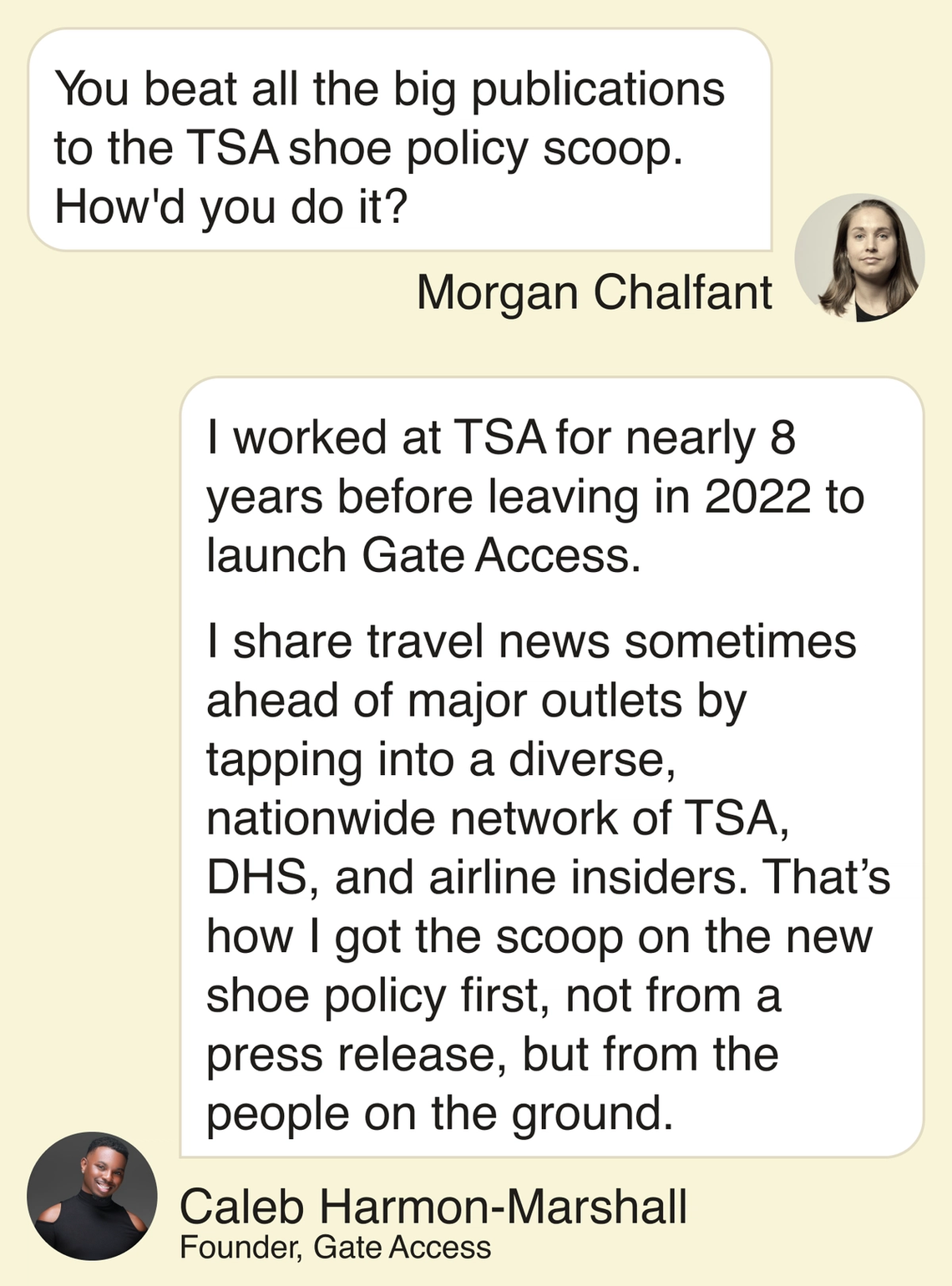| | In today’s edition: Courier’s cash crunch.͏ ͏ ͏ ͏ ͏ ͏ |
| |   Washington Washington |   New York New York |   Miami Miami |
 | Media |  |
| |
|
 - Courier’s pleas
- Tough advice
- Condé Nastalgia
- Podcast cash
- Hasker under pressure
- Spanish Dateline
|
|
 President Donald Trump has managed, time and again, to bend the Republican Party, its voters and its legislators to his will. Can he do the same with conservative media and Jeffrey Epstein? He’s trying hard: Over the weekend, he downplayed the lack of Epstein findings in a Truth Social post as his base fumed at the revelation that the Department of Justice says there is no hidden internal ledger of Epstein clients. The base has good reason to feel betrayed: Over the last several years, conservative media has regularly fanned the flames of Epstein conspiracy theories, maintaining that President Joe Biden’s administration concealed information related to the former New York financier. Trump, Vice President JD Vance, and others often indulged some of these theories, seeing political gain in speculating about a lurid saga that has captivated a segment of the public. Now, despite the fact that the Department of Justice and the White House made a public relations spectacle of handing out official-seeming binders to right-wing influencers, the president is dismissing the whole saga as old news. That there is no “client list” isn’t a real revelation to anyone who’s been following the news, of course: Julie K. Brown and other journalists covering Epstein have said they couldn’t find any evidence from sources that the late sex offender ever kept such a list. But the president now needs to bend conservative media to his will once again — and to reality. He’ll have to convince his MAGA allies that the conclusion of the juicy story they’ve been pursuing for years is much like the one the mainstream media reported long ago. Also today: Courier’s cash crunch, podcast expansions, and some blunt advice for elected Democrats from a hot ad firm. (Scoop count: 5) |
|
 Courier on TikTok Courier on TikTokThe leader of a Democratic news organization sent out an urgent plea to donors as Republicans raced to pass their “big, beautiful bill.” In an email earlier this month to top donors and other Democrats obtained by Semafor, Courier Newsroom founder Tara McGowan said the organization had published more than 500 stories around the GOP megabill across 11 different Courier-owned outlets. But she said they were not breaking through. If given the cash for social media promotion, Courier could provide “scalable boosted news and/or targeted subscriber acquisition program using our coverage of this bill within hours,” McGowan wrote — and could fight back against legislation progressives have decried as unacceptable. Courier is open about its ties to the Democratic Party. But McGowan’s fundraising email does not make the point that money is needed to power meaningful journalism — rather, it’s to accomplish a political end. And Democratic donors have slowed their giving dramatically. |
|
Top firm to Dems: Get online or get out |
 Screenshots of TikTok posts from Adam Schiff, Chi Ossé and Zohran Mamdani Screenshots of TikTok posts from Adam Schiff, Chi Ossé and Zohran MamdaniAn up-and-coming Democratic admaker, Van Ness Creative Strategies, is warning Democrats in key 2026 battleground districts that they’re “failing” to reach Americans online. “Electeds, candidates, and organizations must take social media seriously,” the firm wrote in a strategy memo shared with Semafor that will be sent to Democratic campaigns and firms Monday morning. “If you do not feel like you can handle communicating directly with voters or constituents… now is a great time to retire.” The firm said a significant fraction of congressional Democrats had left their personal and campaign social media accounts dormant. Only 16% post videos often or even occasionally on their campaign accounts, the firm found, and only 4% are posting there more than once a week. That lack of communication effectively cedes the internet to the opposition, the memo argued. |
|
 Michael Grynbaum Michael GrynbaumThe social media cannibalization of tastemaking and the destruction of our ability to read anything longer than an Instagram caption has prompted a mini wave of nostalgia for the old days of media elites. Next week, New York Times media reporter Michael Grynbaum is publishing Empire of the Elite, a profile of the rise and fall of magazine publisher Condé Nast. Over the last week, I read through Grynbaum’s excellent book, which is littered with tidbits from the golden era of magazines, drawing out the personalities of the media’s ruling class. In one anecdote, Grynbaum details Vogue’s Anna Wintour and her famously “brusque management style”: “One Vogue editor was in a meeting with Anna when the telephone rang; Anna answered, then grabbed a tube of lipstick and scrawled a message on a sheet of paper that she silently handed across the desk: ‘Please leave.’” He’s topping it off with a party in the old Condé Nast cafeteria later this week. |
|
The ‘Nat Geo’ of podcasting |
 Kaleidoscope KaleidoscopeThe science and tech podcast startup Kaleidoscope completed its Series A fundraise, the company confirmed this week. Its co-founders, former iHeartMedia executive Mangesh Hattikudur and Sleepwalkers host Oz Woloshyn, declined to share specific dollar figures, but said hits like helped the New York-based company find its niche. There’s a hunger among advertisers to be in front of quality content about the future backed by journalistic rigor, they said, pointing to hits like On with Walter Isaacson. “If you look at every other previous cable or magazine category which has been disrupted and overtaken by a podcast network — whether it’s like Lifetime or Cosmo becoming Call Her Daddy and Unwell, or Oxygen becoming Audiochuck, or Comedy Central becoming Smartless, or CNBC and Acquired — there is no Nat Geo and Discovery types of storytellers in podcasting,” Woloshyn told Semafor. |
|
 Brendan McDermid/Reuters Brendan McDermid/ReutersIn February, Trump claimed that “Radical Left Reuters” had been paid $9 million by the Department of Defense and demanded that it return the money. The rumor, fueled by Elon Musk at the height of his influence as figurehead of the Department of Government Efficiency, wasn’t true; DOGE had mischaracterized a Pentagon contract with a unit in the sprawling Thomson Reuters business that serves law enforcement and defense agencies. But it’s an illustration of the unique risks companies now face when one of the businesses they own publishes news. In a conversation with Semafor’s Andrew Edgecliffe-Johnson for The CEO Signal, Thomson Reuters CEO Steve Hasker shrugged off the president’s attacks — and said his company has retained “the vast majority” of its government contracts. Running a newsroom whose journalists regularly report from active war zones puts PR crises in context, he said: “That’s one of the benefits of having Reuters in the portfolio. Everyone else looks [at Reuters] and says, ‘OK, that’s how you behave under fire.’” |
|
 NBCUniversal NBCUniversalDateline will launch Dateline en español, a podcast adaptation of Telemundo’s Spanish-language episodes of Dateline, hosted by Noticias Telemundo anchor Julio Vaqueiro. The show plans to drop episodes twice a week every Thursday and Friday starting July 21, Semafor has learned, though for the first several weeks the podcast will release episodes daily. It’s simply an audio version of a televised program, but it’s an extremely low-lift way for NBCUniversal to expand its reach with Spanish-speaking audiences and signals the growing importance of the Dateline brand to the company. |
|
 YouTube’s favorite doctor won’t stop talking about politics. This week on Mixed Signals, Ben and Max talk to Doctor Mike, a family medicine physician with over 14 million subscribers on YouTube, about the space he occupies online, his critiques on the government and legacy media’s ability to communicate medical information, and why he’s not afraid to get political by calling out RFK Jr. and the current administration. Listen to the latest episode of Mixed Signals now. |
|
Caleb Harmon-Marshall is the founder of Gate Access, a travel site that broke the news that the Transportation Security Administration will no longer make passengers take their shoes off.  |
|
|